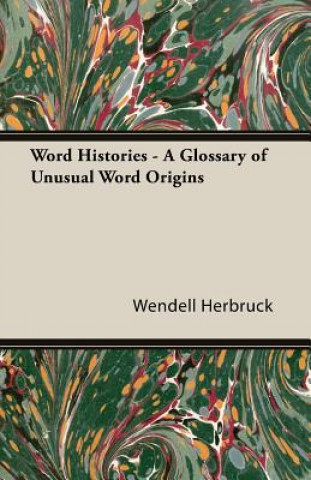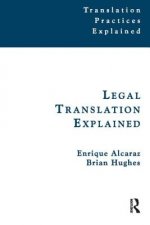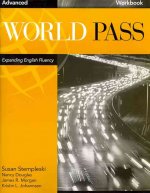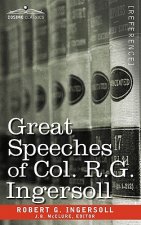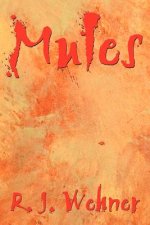
Doručení
Nákupní rádce





Nehodí se? Vůbec nevadí! U nás můžete do 30 dní vrátit
 Dárkový poukaz
V libovolné hodnotě
Dárkový poukaz
V libovolné hodnotě
S dárkovým poukazem nešlápnete vedle. Obdarovaný si za dárkový poukaz může vybrat cokoliv z naší nabídky.
Word Histories - A Glossary Of Unusual Word Origins
 Angličtina
Angličtina
 87 b
87 b
30 dní na vrácení zboží
Mohlo by vás také zajímat


WORD HISTORIES To MY WIFE FOREWORD Words, like individuals, have their histories. English words, for the most part, are either direct translations, or descendants, so to speak, from an other language, or are Anglo-Saxon words, used today substantially in the same sense as they were in pre-Norman days. As the scope of this volume is necessarily limited, the words listed include mainly those that have wandered, in varying de grees, from their original meanings. For example, the title Duke is omitted because it is directly descended from French due, which in turn is from Latin dux, ducis, a leader. On the other hand Lady justifies its place here for the reason that its progenitor is Anglo-Saxon hlaefdige, a kneader of the loaf, the woman who prepared bread for the oven. The social climbing of such a word furnishes a temptation to refer to its development as its genealogy and to forget that the science of word origins is etymology. The words in this volume were assembled to satisfy a curiosity aroused by a study of Old English, particularly in connection with researches made into Anglo-Saxon laws and charters. It was during the course of such a study that the many engaging vii V1U FOREWORD word personalities attracted my interest, and with the enthusiasm of a collector, I have yielded to the temptation of including other specimens encoun tered during many years of the practice of law, where the background of a word seemed to war rant it. The present edition is a revision and en largement of a volume which first appeared in England in 1935. WENDELL HERBRUCK December, 1940 PREFACE Old English, or Anglo-Saxon, is a language which f ew would now understand. With its roots in Teu tonic soil, it developed under the Roman invasion, and was nourished by the subsequent overrunning of the British Isles by the Danes, the Angles, the Saxons and other races of northwest continental Europe. The greatest changes in the language were, however, those that followed the battle of Hastings and the business-like conquest of all things Anglo-Saxon that commenced with the Doomsday Survey. The briefest study of the development of English from the advent of William until the death of Elizabeth will produce sufficient evidence to dis close that the Normans were victorious in 1066 and continued in power without reference being had to a political history of England. With the Normans came a new political and social structure new rules of law, new land tenures, a new administration of Justice, a new ruling class in time, practically everything was changed and new words were used to describe and define the new order, which, however, continued to center about the King, whose title remained an Anglo-Saxon word, and one that the conquered English IX X PREFACE could understand. Evidence of the conquest ap peared in all the words thereafter introduced by the French to describe the Norman sovereignty and to embellish the dignity of the conqueror. In this group of words are palace, duke, throne, realm, royalty, regal, homage, sceptre, reign, sovereign and chancellor. Prince and count and duchess are of continental origin, but King and Queen were names long before used by the rulers of the British tribes. Few titles of great dignity have developed from the homely beginnings of the Anglo-Saxon social struc ture. Conspicuous as exceptions to this rule, for their lowly origin are the titles Lord and Lady, one, in Anglo-Saxon times, the guardian of the loaf and his wife the kneader of the dough or loaf. Quite naturally the English became the serving and the working class and in the kitchen and the field we find preserved the words which those who served there could understand. In the barn and field the farmer worked with flail, and plough, sickle, and spade. He fed the ox, the steer, the cow and the calf...
Informace o knize
 Angličtina
Angličtina




 Jak nakupovat
Jak nakupovat















